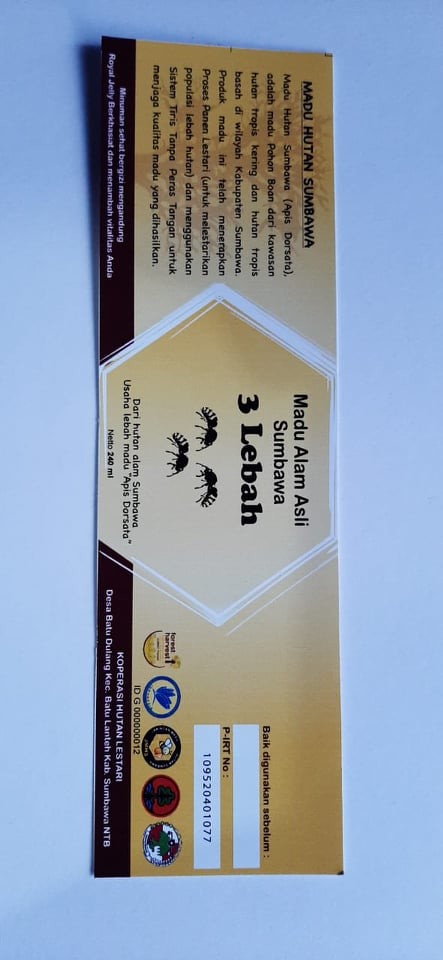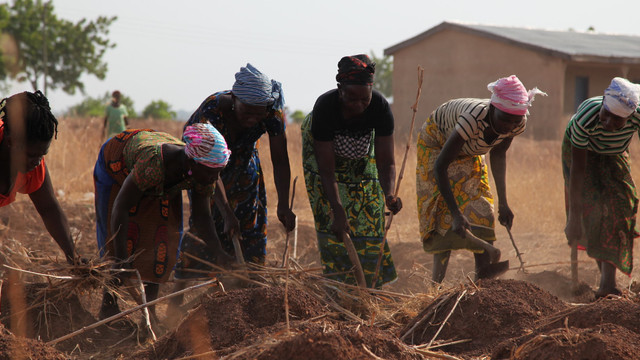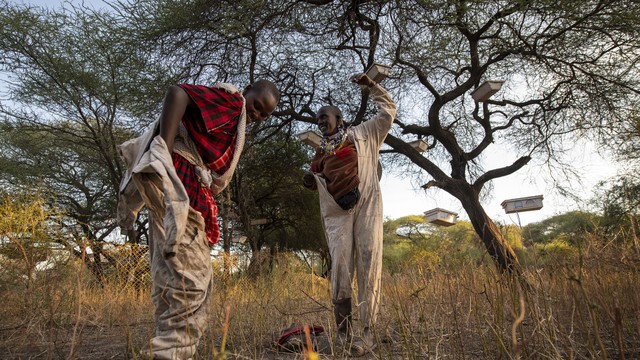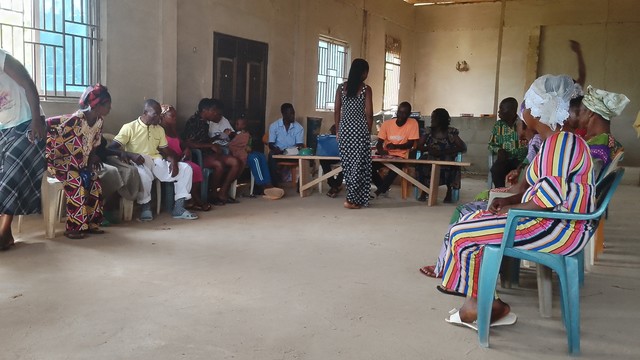How innovative shared labels are promoting diversity, biocultural heritage and sustainable production
Shared labels used by smallholder producers can promote biocultural diversity, build climate resilience and drive social justice. An IIED report explores trailblazing shared label initiatives by smallholder organisations across Africa, Asia and Latin America.


Charcoal producer in Nyimba district, Zambia. The label Choma Charcoal Association provides an incentive to produce charcoal sustainably in Zambia (Photo: Mokhamad Edliadi/CIFOR, via Flickr, CC BY-NC-ND 2.0)
It’s hard not to feel defeated by the daily global news. Structural crises of climate change, biodiversity loss and inequality coupled with the prevailing impact of war and COVID-19 dominate our screens and pervade public discourse.
For our planet to survive escalating climate change and rapid biodiversity loss, we need healthy, well-functioning ecosystems. Disruptions to global supply chains and threats to widespread food security highlight the need to strengthen regional and domestic value chains.
These multiple, overlapping problems can seem too large, too complex and too expensive to tackle.
And yet, working away in the background, out of the global spotlight, smallholder producers − making up 84% of all farms worldwide − are providing answers.
Their rich variety of goods from diverse landscapes are locally, fairly and sustainably produced.
Increasing their market share can simultaneously tackle the complex, interlinking global challenges of poverty, food insecurity, ecosystem degradation and climate change.
Growing demand for quality products – that are local, fair, and sustainable
Consumer demand in the global North for sustainability labelled products is well documented. And there is growing evidence of increasing demand for organic and local products and services in middle classes in countries of the global South.
But the process for allowing a product to carry a label to show it is, for example, fairly-traded or sustainable, is often complex and costly – and so favours large-scale producers.
Smallholder producers and their organisations need a way to distinguish their products, and to demonstrate the value of their products to this expanding market.
Shared labels to boost market presence
An IIED report sheds light on the innovation of ‘shared labelling’ used by smallholder producers and their organisations to increase their marketability.
‘Shared’ or ‘collective’ labels work by a producer group collectively agreeing to carry a label on their products that signals they share certain characteristics distinguishing them from others. Only the members of these groups are allowed to place the label on their products. It might sit as a logo next to the producers’ own trademark on the packaging. And it is the members of the group itself who define the rules and the quality standards their label represents.
These labels allow for collective marketing which provides economies of scale and a stronger bargaining position in the value chain. They are also a way of connecting producers with consumers by telling them a story about their product – what differentiates it from others in the market and of its distinctive qualities.
Share labels reflect local priorities
The labels are based on standards the producers set themselves. Our report shows how these standards are highly varied, specific to local priorities and needs, and carefully targeted to meet market demands.
Some initiatives focus on sustainable production, such as the sustainable charcoal label developed in Zambia by the Choma Charcoal Association providing an incentive for local charcoal producers to produce charcoal sustainably by improving traceability; or the Tan Dong Organic Pomelo Cooperative in Vietnam catering to a growing national demand for pesticide-free food products; or the Kishan Chautari multistakeholder participatory mechanism in Nepal providing a quality assurance system for climate-resilient, organic farming practices based on traditional knowledge.
Others are centred around biocultural heritage – such as the Forest Harvest collective mark developed to regionally market a basket of sustainably produced high quality products with forest origin in Southeast Asia, or the Amazon Chakra Seal in Ecuador promoting traditional farming systems that prioritise organic production, environmental sustainability, conserving biocultural heritage and Indigenous identity, and sustainable livelihoods.
Others again base their shared label on geographic origin and the particular qualities production location bestows on the product, such as high altitude coffee Cafecito Boliviano marketed by the National Association of Coffee Producers in Bolivia.

Lebah’s honey label showing the Forest Harvest collective mark logo (Photo: copyright Junaidi and Teophila Aris Praptami)
Winning consumer trust
For any label to be valuable it must be transparent and trusted by the consumer. Within retail markets, consumers typically look to 'third-party' certification – where products are verified by an independent body − for assurance of, for example, economic, social or environmental standards.
But the costs and administrative burden of third-party certification are a major barrier for smallholders.
Products carrying shared labels take the alternative route of second-party certification such as Participatory Guarantee Systems. Under these systems, producers set their own quality standards and, essentially, certify each other.
For the producer, administration of second-party certification is lighter-touch and the scheme is less costly. For the consumer, this certification offers assurances of the product’s traceability, quality and sustainability.
Three practical ways to support shared labels in policy
Our report presents policymakers with three main areas for supporting smallholders and producer organisations to use shared labels:
Red tape, policies and taxes
- Procedures for registering shared labels should be simplified to help smallholder producers with limited capacities deal with complex or lengthy bureaucratic procedures, and
- Trade and tax policies should differentiate between normal products and those with sustainability or diversity claims, to allow smallholders to compete against larger companies by using shared labels.
Education and promotion
- Governments should invest in public education campaigns that raise awareness on the issues that smallholder shared labels address – this could boost the marketing potential of shared-labelled products.
Direct support to smallholders
- Governments should provide smallholders with a range of support to promote their sustainable production practices and help get their shared labelling initiatives off the ground. This might include technical, advisory, networking, research and development as well as financial service support.
While tackling the world’s multiple and overlapping crises can seem overwhelming in terms of costs and complexity, these options are relatively straightforward and inexpensive to implement.
Supporting smallholders’ use of shared labels offers exciting, locally-driven solutions to some of the planet’s most pressing problems.




